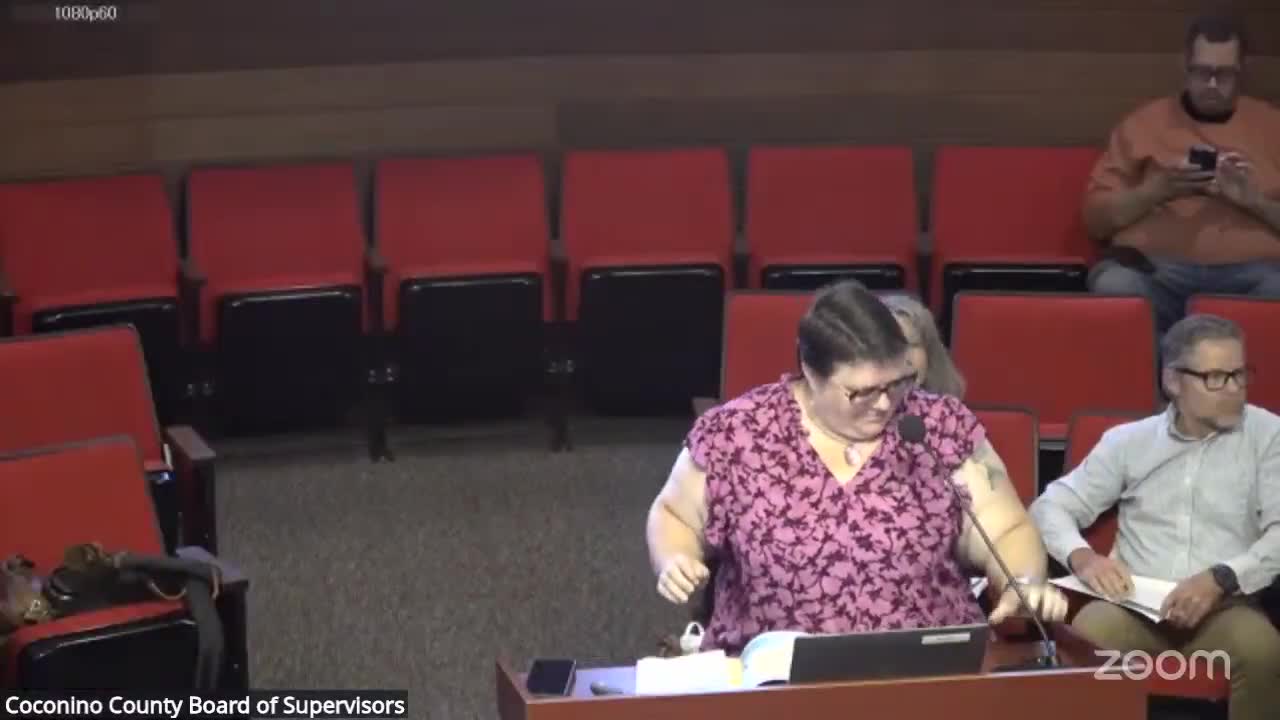Article not found
This article is no longer available. But don't worry—we've gathered other articles that discuss the same topic.
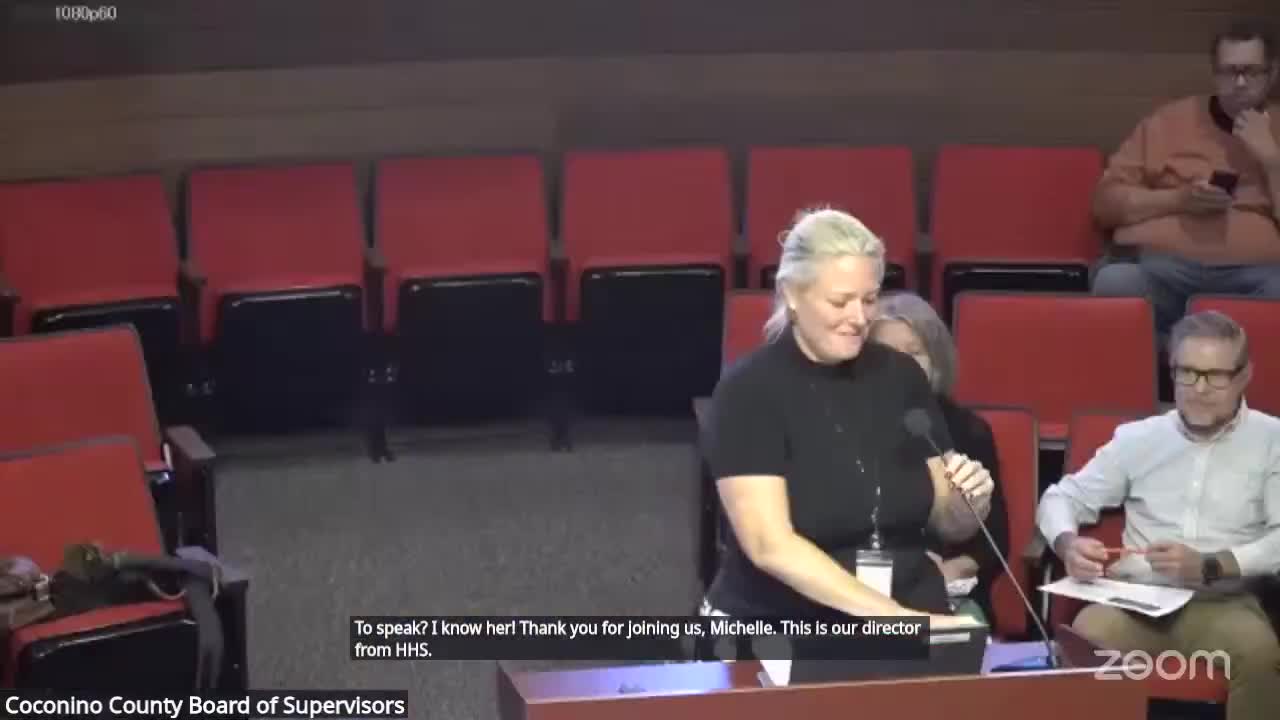
Coconino County Health and Human Services opens vaccine clinic Tuesdays and Thursdays; ACIP decision could widen COVID coverage
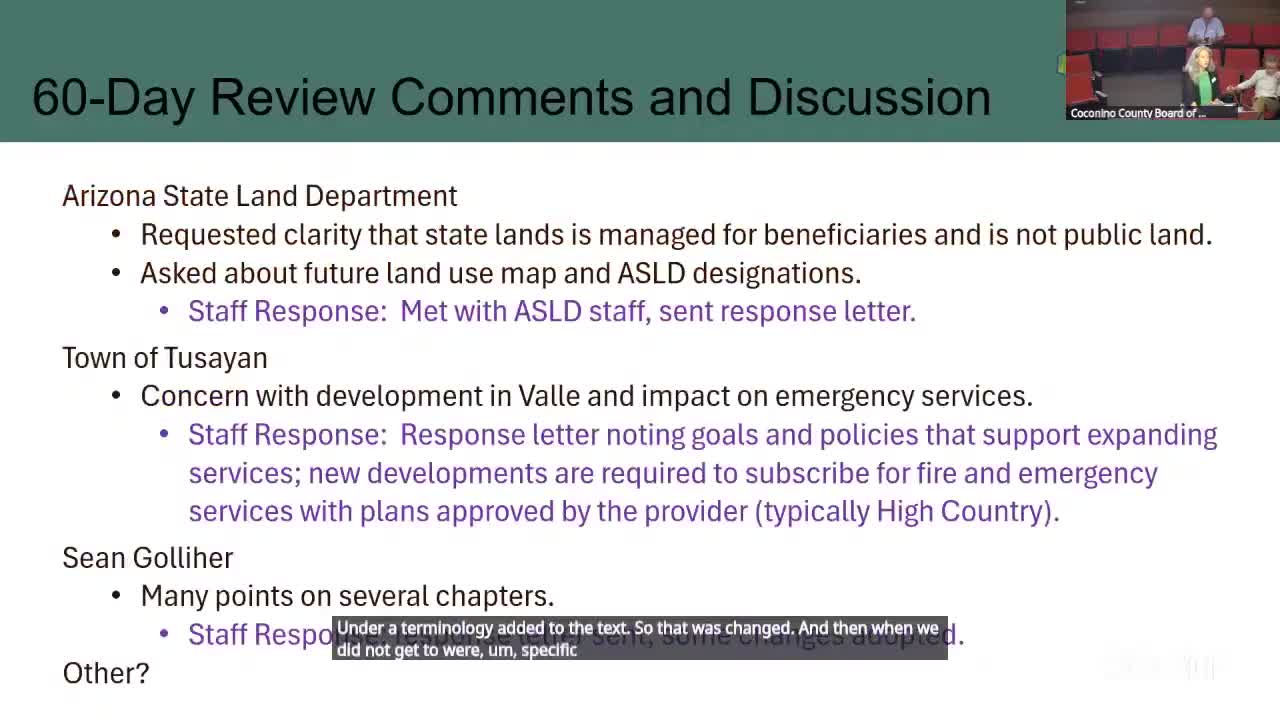
Votes at a glance: Coconino County Board approves grants, contracts, appointments and precinct adjustments Sept. 9
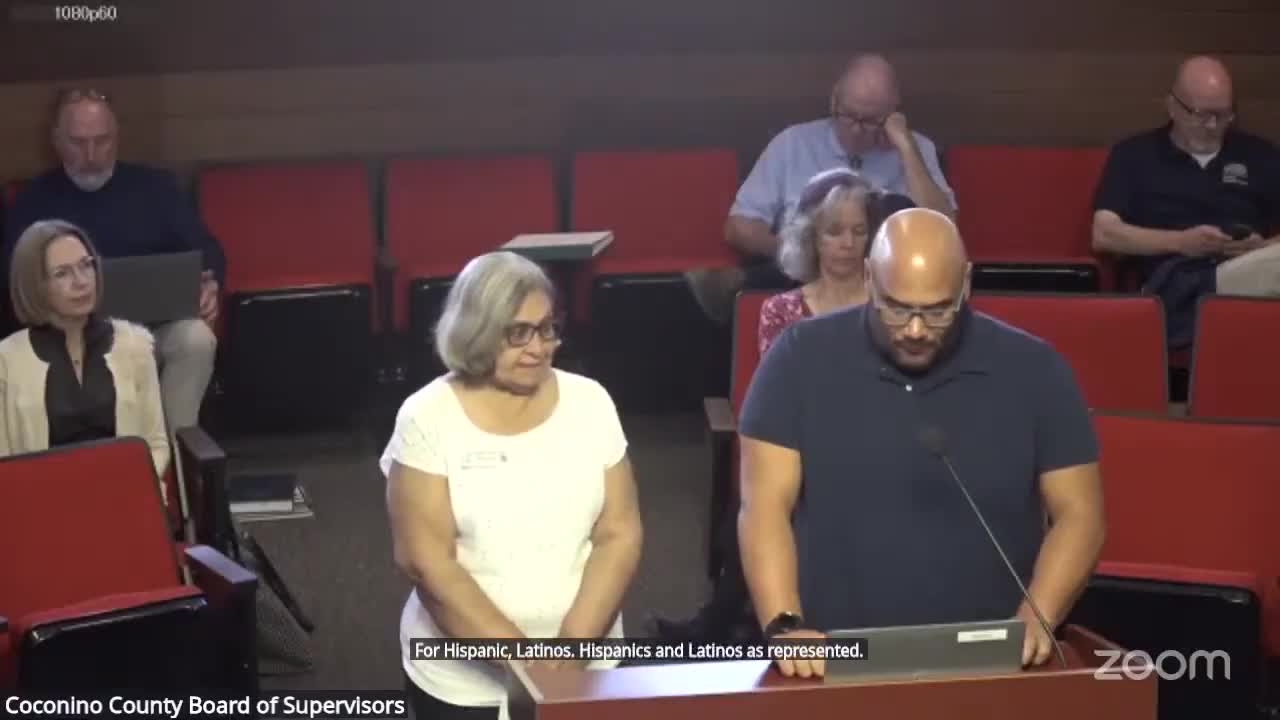
Insurance industry lays out wildfire risk, urges science‑based mitigation as county begins public sessions
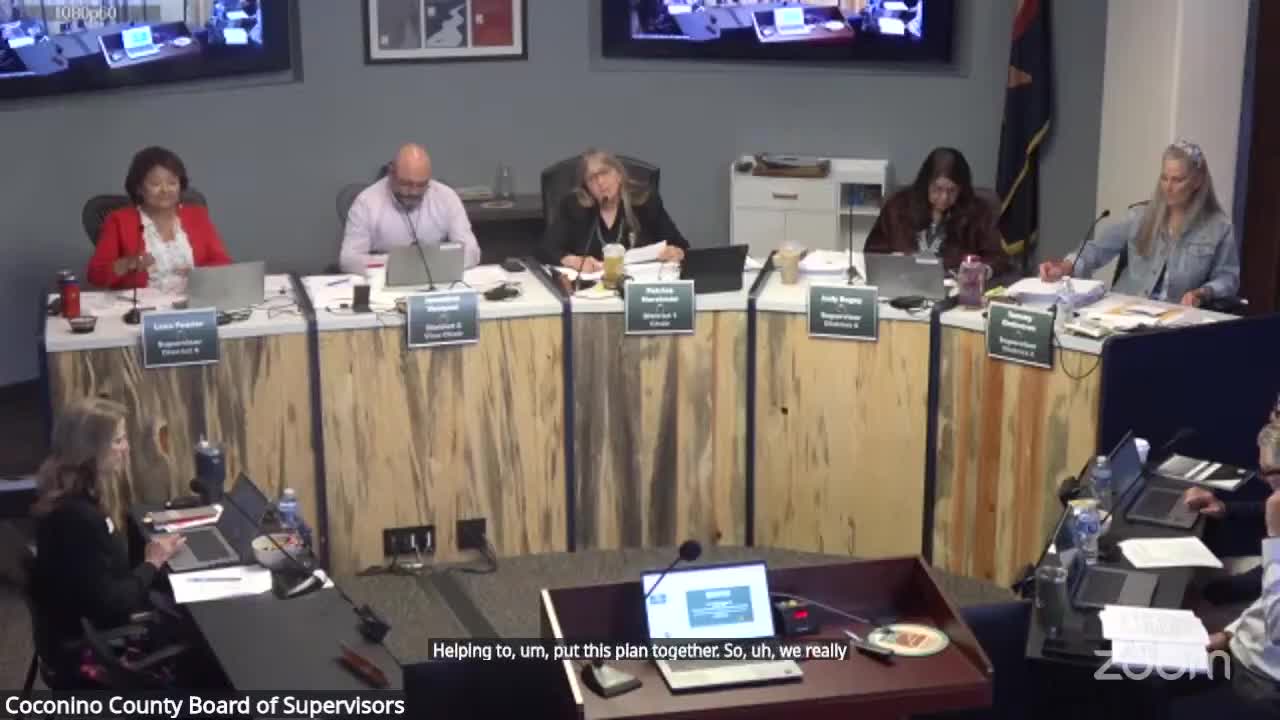
Coconino County leaders review draft comprehensive plan update, set public hearing schedule
